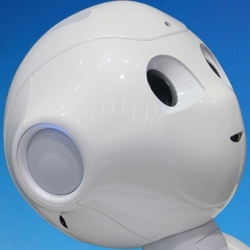
Bridgewater Associates has a team of software engineers working on the project at the request of billionaire founder Ray Dalio, who wants to ensure the company can run according to his vision even when he’s not there.
The firm, which manages $160 billion, created the team of programmers specializing in analytics and artificial intelligence, dubbed the Systematized Intelligence Lab, in early 2015. The unit is headed up by David Ferrucci, who previously led IBM’s development of Watson, the supercomputer that beat humans at Jeopardy! in 2011.
The company is already highly data-driven, with meetings recorded and staff asked to grade each other throughout the day using a ratings system called “dots”. The Systematized Intelligence Lab has built a tool that incorporates these ratings into “Baseball Cards” that show employees’ strengths and weaknesses. Another app, dubbed The Contract, gets staff to set goals they want to achieve and then tracks how effectively they follow through.
These tools are early applications of PriOS (the new AI system, referred to as the "Book of the Future" by Dalio and the Principles Operating System) the over-arching management software that Dalio wants to make three-quarters of all management decisions within five years. The kinds of decisions PriOS could make include finding the right staff for particular job openings and ranking opposing perspectives from multiple team members when there’s a disagreement about how to proceed.
“It’s ambitious, but it’s not unreasonable,” said Devin Fidler, research director at the Institute For The Future, who has built a prototype management system called iCEO.
Devin Fidler described iCEO in the Harvard Business Review. For the last several years, the Institute For The Future (IFTF) has been studying the forces now shaping the future of work, and wondering whether high-level management could be automated. This inspired us to create prototype software we informally dubbed “iCEO.”
As the name suggests, iCEO is a virtual management system that automates complex work by dividing it into small individual tasks. iCEO then assigns these micro-tasks to workers using multiple software platforms, such as oDesk, Uber, and email/text messaging. Basically, the system allows a user to drag-and-drop “virtual assembly lines” into place, and run them from a dashboard.
But could iCEO manage actual work projects for our organization? After a few practice runs, IFTF were ready to find out.
For one task, they programmed iCEO to oversee the preparation of a 124-page research report for a prestigious client (a Fortune 50 company). We spent a few hours plugging in the parameters of the project, i.e. structuring the flow of tasks, then hit play. For instance, to create an in-depth assessment of how graphene is produced, iCEO asked workers on Amazon’s Mechanical Turk to curate a list of articles on the topic.
After duplicates were removed, the list of articles was passed on to a pool of technical analysts from oDesk, who extracted and arranged the articles’ key insights. A cohort of Elance writers then turned these into coherent text, which went to another pool of subject matter experts for review, passing them on to a sequence of oDesk editors, proofreaders, and fact checkers.
There’s no reason to believe that a lot of what we think of as strategic work or even creative work can’t be substantially overtaken by software.”
